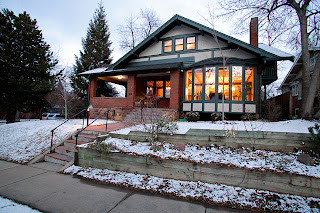The Local housing market is the most stable in the US
According to the rest of the state, residents of Boulder, Colorado, live inside a bubble. Within an invisible force field created by public open space and mountains, lives a people known for liberal attitudes, advanced degrees, healthy lifestyles and outdoor casual fashion. But lately, as home prices climb at a pitch as steep as our iconic Flatirons, friends have been asking me if we are in a housing bubble that’s about to burst.
The short answer is no. Last summer, Boulder’s housing market was named the most stable in the country, according to SmartAsset.com, which looked at price trends over the past 25 years. “Over the past 25 years, home prices have grown an average of 4% a year in Boulder and are approaching a price level nearly quadruple that of 1990,” the article said. Even during the foreclosure crisis and Great Recession, our prices never declined more than 5%.
Instead of the roller coaster ride other housing markets have seen, our home price index trajectory looks more like an alpine ascent with a gradual uphill, a plateau/small dip during the recession and a really steep pitch over the past two years. (The HPI is a weighted, repeat-sales index, meaning that it measures average price changes in repeat sales or refinances on the same properties.)

This steep climb in home prices is leaving many buyers (and their agents) feeling out of breath. The inventory of homes for sale has decreased even as the number of closings and eager buyers has increased, meaning that almost every new listing sparks a feeding frenzy followed by a bidding war.
Within city limits, the median house price has increased by 15% to $788,000 in the first three quarters of 2015, and the average sales price is over $955,000. But 2015 may end up being known as the “year of the condo and townhome” in Boulder as the median price is on track to increase over 20% from 2014, reaching over $340,000. As more homebuyers and cash investors are squeezed out of the house market, they are turning to lower-priced condos and townhomes.
Median Sales Price of Detached Single-Family Homes:

Median Sales Price of Condos and Townhomes:

The question is, can this steep incline in sales prices continue – is it sustainable? As long as cash keeps flowing into Boulder, prices will keep climbing. With Google moving 1,500 employees into its new Boulder campus in 2017, and another 300,000 square feet of new office space coming on-line over the next two years, demand for housing will increase, if anything. And with almost no new homes being built for sale within our bubble, the supply will remain limited.
Once the new employees are settled and when mortgage interest rates start increasing, then I think the housing market will calm down into a more gradual upward increase (but prices won’t drop significantly). And while this blog has focused on the City of Boulder, surrounding communities are seeing similar sale price increases. Rather than bursting, the Boulder housing bubble is merely expanding to encompass Louisville, Gunbarrel, Superior, and beyond.









